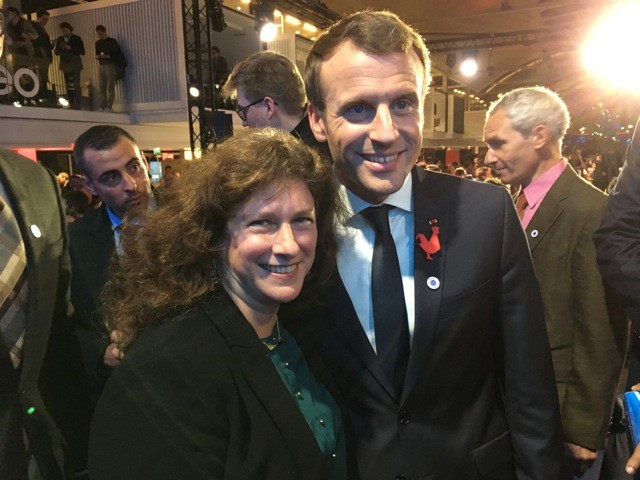Jackson School’s Camille Parmesan Receives Grant to “Make Our Planet Great Again”
December 11, 2017

Camille Parmesan, an adjunct professor at the University of Texas at Austin Jackson School of Geosciences and professor at Plymouth University in the UK, is one of 18 scientists selected to receive a “Make Our Planet Great Again” grant from the government of France. The grant is an initiative of the President of France Emmanuel Macron, and provides awardees with three to five years of funding to conduct climate and Earth science research in France.
Macron launched the initiative on June 1, 2017, shortly after U.S. President Donald Trump announced that he would withdraw from the Paris Agreement, a United Nations agreement to respond to climate change and keep temperature rise below 2 degrees Celsius. The grant recipients were selected from a total of 1,822 applications and announced on Dec. 11, 2017.
Parmesan studies how plants and animals respond to climate change. In the 1990s, she found that butterfly populations in southern U.S. and Europe were dying out in southern regions while expanding their habitat northwards. Her research was among the first to show climate change directly impacting animal populations.
“This research has been important independent support of what the climate scientists have found in the temperature data,” Parmesan said in a video she released to comment on the award. “The research has also been important in shaping the international policy determining that 2 degrees Centigrade is the threshold for dangerous climate change.”
Parmesan plans to use her grant to study how animals from tropical areas are moving into Europe and how they may be spreading tropical diseases into new areas. She will be conducting her research at an ecological station in Moulis, France in the Pyrenees Mountains.
Jay Banner, the director of the Jackson School’s Environmental Science Institute where Parmesan is a senior researcher, said that Parmesan’s award is a win for science as whole.
“[Parmesan’s] discoveries provide a benchmark for many other researchers – she is among the most highly cited climate scientists in the world,” Banner said. “I’m also encouraged to know that UT’s loss, and now the UK’s loss, is science’s gain, as she helps form a unique, interdisciplinary group of researchers bringing their expertise together. I’m looking forward to what new discoveries will come from this group.”
